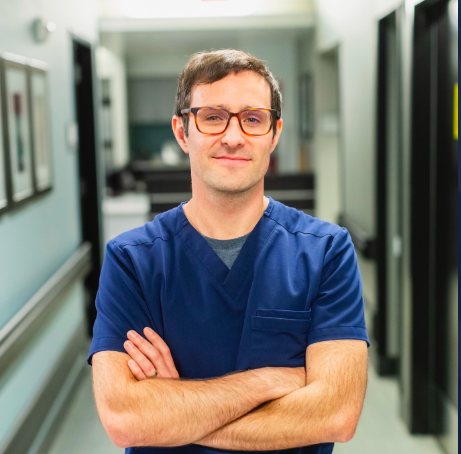Radiologist launches independent job board to combat ‘disingenuous’ postings
A Texas radiologist is launching an independent job board to combat what he believes are “disingenuous” postings from others in the imaging industry.
Ben White, MD, recently soft-launched the service on his blog, highlighting 10 private practices that are hiring around the U.S. He plans to officially establish a separate standalone site that will accept paid job ads on Aug. 14 (update: here's the link).
The motivation came after reading posts on the American College of Radiology Career Center, with some employers advertising positions as “independent private practice” when that was not the case.
“I don’t see how one can justify allowing Radiology Partners to disingenuously call itself an ‘independent private practice’ on its job postings (other than by just acknowledging the financial conflict that RP is probably the job forum’s largest customer by a wide margin),” White wrote in January when he started mulling the idea. “I’m not even saying these are bad jobs. Quality is irrelevant here. You are what you are, and pretending you’re not a nationwide private equity conglomerative corporate practice in a job listing for a teleradiology position is only something you do because you don’t want to get filtered out of people’s search queries.”
ACR and RP did not immediately respond to a Radiology Business request for comment Wednesday. White—who is associate program director for the Baylor University Medical Center Dallas Radiology Residency Program—said listings seem to have gotten better since earlier this year. More recent RP postings have been characterized with designations such as “national radiology practice” or “local practice affiliated with RP,” while including a prominently placed logo for the organization.
“I appreciate that they've made that overdue change. I would also hope that all captive practices are being honest in their direct communications with prospective applicants,” White told Radiology Business by email.
Still, ACR’s is a “very large job board,” he noted, with over 400 listings when filtering for private practice and nearly 1,900 total positions. White believes this may make it hard for groups to stand out and compete for eyeballs. He hopes his site can serve as a niche alternative for small private practices.
As reported earlier this week, current competition for radiologists is fierce, with staffing firm AMN Healthcare labeling the specialty as its sixth most requested search in the past year. An aging population that requires more diagnostic imaging, physician retirements, and new market entrants are all combining to increase competition for talent.
“We are in the midst of a true radiology labor shortage. Many groups have more work than they can comfortably handle and a real challenge recruiting new rads,” White said by email. “Couple that with the growing teleradiology trend and it can be especially hard to recruit for on-site positions, especially in smaller or less desirable metro areas. Lots of unsatisfied rads are quitting their jobs but then joining the remote workforce in order to stay where they are (and plenty of fresh graduates are tired from training and choosing to jump straight into teleradiology lifestyle as well). The result is a domino effect: The more people are only willing to work remotely, the more remote positions groups need to create to get manpower, even when it's suboptimal. The downstream consequences are a premium for on-site work and a real squeeze for practices that need on-site coverage.”

White believes today’s radiologist job seekers are savvy enough to recognize if a listing is missing crucial information. Some applicants have even adopted a more “mercenary outlook” and are optimizing their approach for each job and using the market to their advantage to achieve all of their asks.
“Everything is local to an extent, but overall, the power nationwide has shifted recently more toward the radiologist over the practice. The unlimited number of remote positions in the current market means that a noncompete for nonprocedural specialties has lost a lot of its power. I also think that private practices on the whole lost a lot of goodwill after the wave of sales to private equity,” he told Radiology Business. “Between the troubled past over the past decade and the unknowable future, I do think a significant number of radiologists who would have historically wanted to join a partnership and build a practice are more interested in maximizing measurables like compensation, PTO, and lifestyle immediately as an employee instead of delaying that gratification for a future buy-in.”
Current practices seeking help on his website include Midwest Radiology in Minneapolis, Mecklenburg Radiology Associates in Charlotte, N.C., and Radiology Associates of Ocala, Fla. White organized the site to have one listing for each private practice that includes all positions being sought, rather than lots of single posts for each job.
“I believe in the importance of thriving independent private practices for the field of radiology. True private practice—where doctors control the organization, are responsible to their peers and patients, and earn the full fruits of their labor—is the benchmark that sets the market and provides the anchor against exploitation from unscrupulous employers,” he wrote in an update shared Aug. 1.

